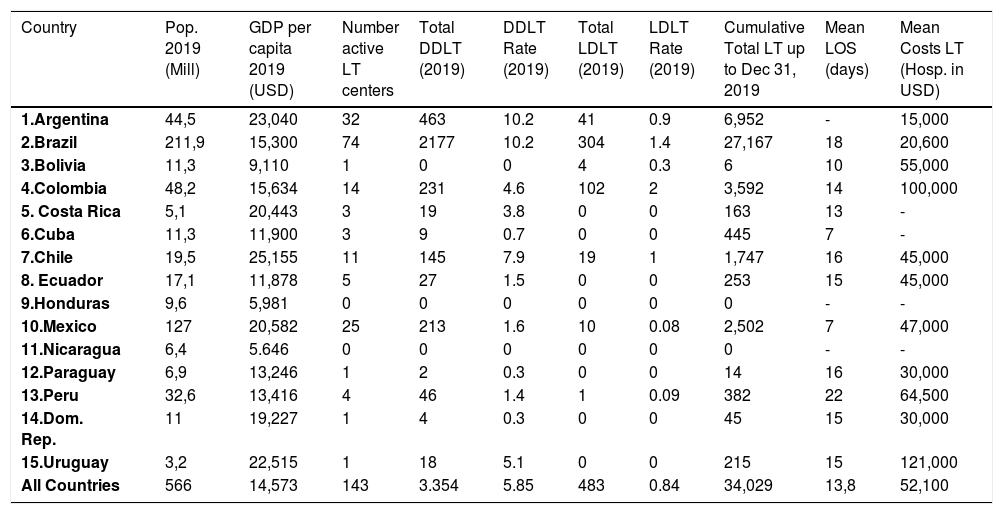
Abstracts of the 2021 Annual meeting of the ALEH (Asociación Latinoamericana para el Estudio del Hígado)
More infoLatin America (LA), is a geographical region with 20 countries homing 652 million people (10% world population), with a huge cultural, economic and developmental diversity. The ALEH (Asociación Latinamericana para el Estudio del Hígado) has driven the formation of a special interest groups (SIGs) to enhance the collaboration of health care professionals with common specialized interests in the field of hepatology.
Aims To increase knowledge of the current situation of liver transplantation (LT) in LA, and share experiences between countries.
MethodsDuring 2020, LA countries, were invited to nominate representatives to this SIG and also from the STALYC. Online ZOOM meetings were arranged to discuss a survey with more than 70 questions in relation to LT. A database with all the information was built in an excel file.
Results15 out of 20 countries completed the questionnaire by Jan/2021, representing the situation of 569 million inhabitants. The mean GDP (gross domestic product) per capita in 2019, was 14,573 USD, and the mean health expenditure was 6,3% of the GDP (1,6%-10,4%). Despite the lack of resources in LA, LT started early (Brazil: 1968) and currently 3,837 a total of LT are performed each year, with 12,5% with living donors (n=483). Over the last 50 years, 34,029 total LT have been performed in LA.
13 out of 15 countries (84%) perform DDLT and only 7 countries (46%) also LDLT. The allocation system is based in the MELD/MELD-Na system. The mean waiting time for cirrhotic patients is 276 days (with a waiting list mortality of 10-50%). The mean overall survival at 1 and 5 years after LT is 79,3% and 71,9%, which is similar to developed countries.
ConclusionsAccess to LT in the region is very heterogeneous, with limited centers and resources to perform LT. Financial, human and material issues, a legal framework favoring organ donation and the procurement structure constitutes a major challenge to improve LT in LA. The collaborative sharing of experiences between countries and centers, may favor the development of guidelines for the region stimulating government initiatives to improve LT access, favoring justice and equity for patients with advanced liver diseases.










